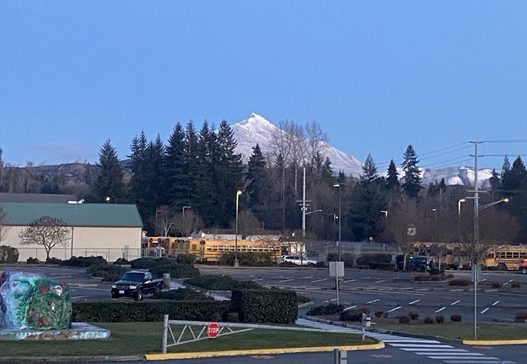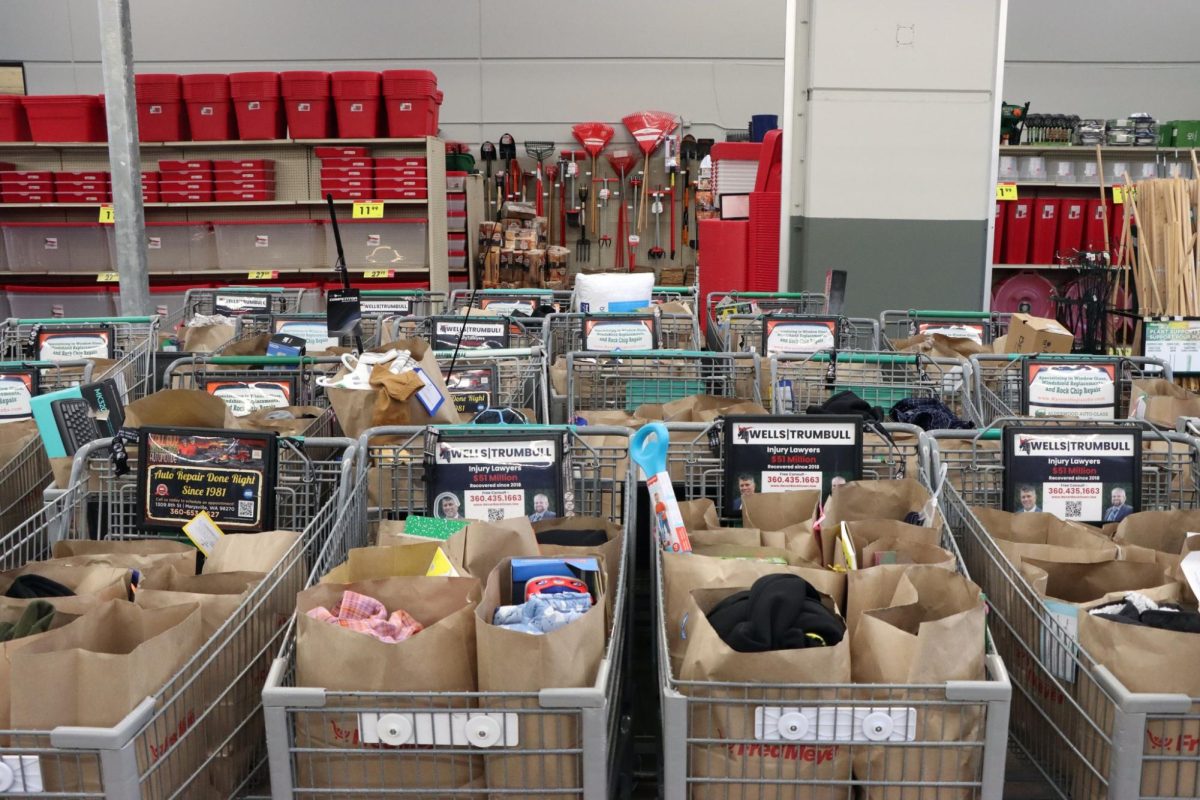My family often refers back to the “ten dollar soup” story as a benchmark for how far we have come since living in poverty. One evening, when I was nine years old, my mother, pregnant with my sister, was craving a bowl of lobster bisque from a local restaurant and was heartbroken when we could not afford it. While poverty took its toll on us, we now find it disorienting to recall a time when ten dollars was expensive. As this story is almost a decade old, inflation would now value this soup worth thirteen dollars. Many Granite Falls families need help with expenses like these, as the average income is insufficient to sustain a household comfortably with the current cost of living. According to the last federal census, the overall poverty rate in Granite Falls is 7.79%, and the average annual income is $59,167, insufficient to live comfortably in Washington’s high cost of living. Part of Granite Falls’ poverty issue partially stems from a lack of college education, as the majority of the population relies on a high school diploma, and there is a significant wage gap between those with and without a college degree.
Last week, as I ordered a Subway sandwich, I had a discussion with the woman behind the counter. She was an acquaintance and a member of last year’s graduating class. When I asked how she was, she sighed, stating that she tried college, but “it didn’t work out” and “she’s still here.” Sadly, this is the reality for most adults in Granite Falls. According to the last US census, over 35.43% of adults in Granite Falls rely on a high school diploma, while another 25.08% rely on some college without a degree.” Combined with the 6.29% of people in the 9th to 12th grade category, this totals 66.8% of people without a college degree. Considering the current estimated Granite Falls population of 5,517 people, 3,658 most likely do not have a college degree.
Unfortunately, this large group of people without a college degree are nearly twice as likely to live in poverty. When looking at the census data regarding Granite Falls poverty by education level, there is a large discrepancy between those with and without college degrees. Adults with a high school education have the highest percentage of poverty at 8.21%, closely followed by adults with some college at 8.02%. However, Adults with a Bachelor’s degree or greater face nearly half of that, at a rate of 4.91%.
While many people in Granite Falls and the surrounding areas struggle with poverty, there is a large network of individuals and organizations who are working together to provide people with resources to help those struggling with homelessness, poverty, and other hardships. The Granite Falls Community Coalition acts as the hub for regional resources. They run a food bank that provides nonperishable items, frozen proteins, pet food, baby supplies, and more, along with drives for school supplies, diapers, and other essentials. They hold monthly meetings with members of the Granite Falls School District, local business owners, and other resource representatives to discuss what the community can do to end this cycle of poverty. Many local business owners pitch in to help or sponsor events, some notable sponsors are Granite Falls IGA, Iron Mountain Quarry, and Granville Grange.
One of the best strategies for ending the cycle of poverty is prevention. This can be accomplished by making sure teens have access to the necessary means to thrive. Each school within the Granite Falls School District has an assigned Student Support Advocate (SSA) who works to remove any barrier to students’ success. SSAs rely on the Community Coalition and many other regional resources such as Arlington Kid’s Kloset, Sno-Isle Libraries, Cocoon House homeless youth center, Lake Stevens Resource Center, Snohomish Health Department, Planned Parenthood, and many more to provide any necessary resources. Granite Falls High School’s Student Support Advocate, Susan Graham, emphasizes this community support:
“Making connections within the community is vital to creating a good foundation for growth for each member to thrive. When we make meaningful connections with our peers, neighbors, and local organizations, it makes the community stronger and more welcoming. This fosters teamwork, empathy, kindness, and encourages sharing of resources.” – Susan Graham, GFHS Student Advocate
Through these resources, SSAs can help provide basic needs, connect with insurance and find medical providers, provide housing support, social-emotional support, get school/academic resources, and crisis intervention. Granite Falls is a tight-knit community who help provide for each other in times of need. Through the work of the school district and the Community Coalition, we can help provide resources to allow others to succeed in life and grow past the struggles of poverty.





